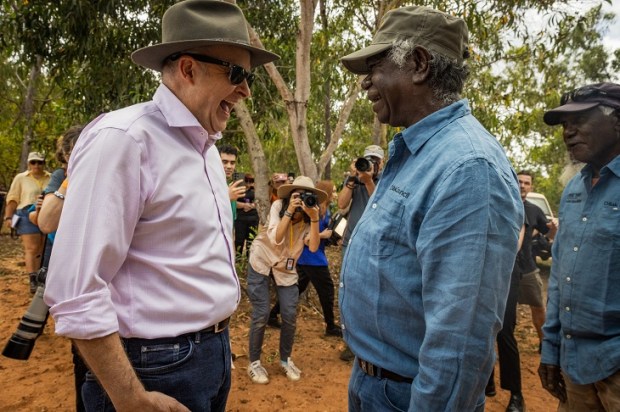On the bus in Drummoyne, Sydney, an obvious granddad with his cherubic grandson, who cheerfully ignores all worried cautions in Italian about standing backward on his seat.
Granddad wears a large ‘Yes’ button and I want to lean across the aisle and ask him if he’s heard about ‘designated’ jobs in the public service. Also what a ‘designated’ job could mean for his grandson’s future employment prospects.
‘Designated’ positions made their first appearances in the much-thumbed, respected public service Gazette, a weighty printed book that held all APS-listed positions and promotions.
‘Designated’ job ads first started appearing in ads for ATSIC, the Aboriginal and Torres Strait Islander Commission, a new entity that had raised hopes among veteran public servants in the old Department of Aboriginal Affairs, of seamless moves into the new body.
Their hopes were dashed – ‘designated’ jobs were reserved for those who could prove Indigenous heritage and soon it didn’t need to be spelled out or explained. Old BING (‘Been In New Guinea’) hands were outraged, most retiring on the spot, which was exactly the anticipated result.
Public servants of South Indian background were similarly disillusioned. As one complained to me, he had been ‘brought in’ on a temporary basis to fill a communication position yet to be advertised as ‘designated’ and filled by an Indigenous person. ‘Merit is supposed to be the overwhelming rider in the public service,’ he said. And so it was, until ‘designated’ jobs came in.
At the time, most federal public servants assumed ‘designated’ jobs would be confined to ATSIC. Wrong. ‘Designated’ jobs were designed to infiltrate the entire federal and state public services, directly challenging the notion that competency for the job meant the best applicant would succeed.
The Greens talk about ‘First Nations justice’, but there seems to be little justice in seeing your job abolished and re-advertised in what was called ‘spill and fill’ strategy; abruptly abolishing a job, then re-advertising it with additional needed qualifications or provisos.
For example, an economist’s position might be abolished and its ‘occupant’ forced to re-apply for their own position, which they would probably not win, as an additional qualification or experience might have been added in the job description, such as ‘ability to communication with remote and rural communities will be considered an advantage’.
If the job holder had not travelled out of metropolitan Sydney, they would be seriously disadvantaged in the selection round. If ‘Yes’ gets up, ‘spill and fill will most likely become the norm in both federal and state public services. And as a result, the Australian community is disadvantaged as long-in-the-job bureaucrats, with years of corporate knowledge, as prised out of the jobs they worked in and understand.
‘No’ voters are not inflammatory, racist bigots. But many are scared, admitting they have no claim to Indigenous heritage. They’re scared, and they have reason to be.
Got something to add? Join the discussion and comment below.
Get 10 issues for just $10
Subscribe to The Spectator Australia today for the next 10 magazine issues, plus full online access, for just $10.


























Comments
Don't miss out
Join the conversation with other Spectator Australia readers. Subscribe to leave a comment.
SUBSCRIBEAlready a subscriber? Log in